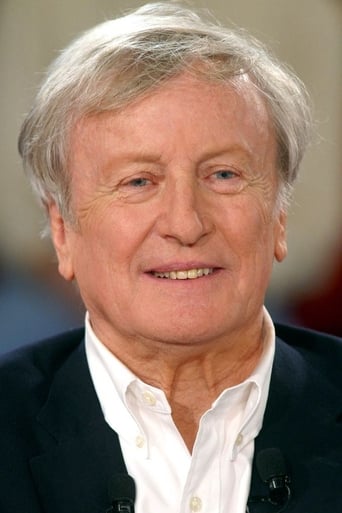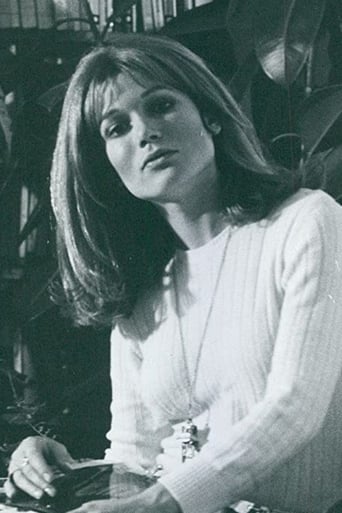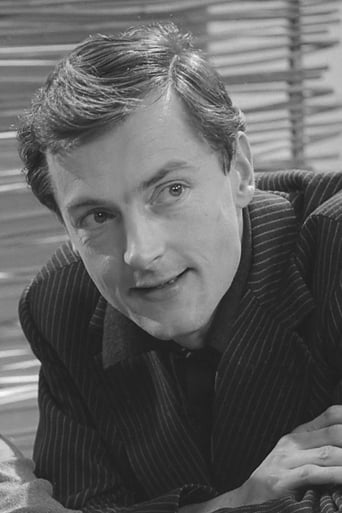VividSimon
Simply Perfect
Comwayon
A Disappointing Continuation
Lollivan
It's the kind of movie you'll want to see a second time with someone who hasn't seen it yet, to remember what it was like to watch it for the first time.
Bumpy Chip
It’s not bad or unwatchable but despite the amplitude of the spectacle, the end result is underwhelming.
eraserdead
A man attempts suicide over the loss of his lover and upon awakening at a hospital he is approached by two men who wish for him to enter into their experiment with time travel but it all goes haywire and he starts reliving just about everything that's happened to him in the last 12 months. Je t'aime, Je t'aime is easily the best movie I've seen who's main focus is time travel. It's handled so normally in comparison to others I've seen and it flows ever so magnificently. The editing is some of the best I've ever seen – such free associative editing instantly reminded me of Luis Bunuel's work, namely Un Chien Andalou. The screenplay is witty and smart and it never focuses too much on the scientific aspects of time travel which is much to it's benefit because it would totally ruin the vibe of the whole film because it's not about time travel, it's about this man coming to terms with his past and figuring out the kind of person he is. The film opens with the man in the hospital and by the end of the film we know everything about this man and how he ended up in the hospital at the start. Absolutely superb filmmaking.http://destroyallcinema.wordpress.com/
chaos-rampant
Ostensibly buried upon release under the avalanche of the '68 events, a time when the Parisian youths were more keen to plan for a radical future than lament a forlorn past (and perhaps as preparation spent their movietime away from the streets watching Week End or La Chinoise, films that rehearsed their efforts), in this Resnais film we find no eternal sunshines and no spotless minds. We find only memory, this destructive facet of consciousness grinding out its painful cycle of endless returns.I had anticipated a complex film, it's what fans of it insist, instead it's the most simple of Resnais' features I have seen. We see here a life rearranged out of time, a love affair, a death. We see how the lovers met, what idle or affectionate time they shared on the same bed, how they hoped or thought to communicate and know one another but probably didn't, the man's struggles to maintain the closeness in the relationship and his failure to do so. We see how they grew apart and broke up, and what happened of them.Resnais' touch is that we don't see any of this in that order, rather as convalescent images relived, as though there might not be pattern there. But once the novelty plays out, he doesn't take it far enough. He has to rely on montage for all this, and acquits himself rather well. When they break up, he doesn't follow the scene with something from older, happier times, the contrast would've been much too easy, instead he gives us an anonymous scene from a time inbetween where she's crying on his shoulder.It's a simple film only because it comes by the hand of Resnais. In retrospect he was perhaps unlucky to make Hiroshima mon Amour his debut. And as followup, the complete, perfect abstraction of it. What was left for him to go next?
robert burton
After the political theme of "La guerre est finie",Resnais returns to his familiar subject,time,in all its complexity in this film which is almost as opaque as "Marienbad" or as unsettling as "Muriel".Ridder {Claude Rich,an actor whom Resnais used many times over the years}is a publisher whose girlfriend is accidentally killed and who feels in some way responsible for her death.After listening to a recording by Thelonius Monk,he unsuccessfully attempts suicide after which he has a lengthy recuperation in a hospital .When he leaves,two doctors who have a constructed a time machine ask if he would like to participate in their experiments. Having nothing to lose,he readily agrees and enters the bizarre contraption along with a white mouse,although unlike the fly in Cronenberg's film there is thankfully no genetic mutation involved. He does not travel forward in time,however,but back ,precisely one year to a beach in Brittany.The experiment is supposed to last for a minute but something goes wrong and he is trapped in the machine.Now he experiences a host of memories brought sharply back to life,some important,others banal,in a kaleidoscope of sharply edited images which brings to mind the montages of "Muriel".The theme is reminiscent of many films from "La Jetée" to "The eternal sunshine of the spotless mind" and this rarely seen film is definitely one of the most important of Resnais' career.
Paul Durango
This film's a landmark in french sci-fi. To be honest, french sci-fi can almost be summarized in 'La Jetée', 'Paris n'existe pas' (don't even try to find this one...) and 'Je t'aime, Je t'aime'. Watch the last to catch a glimpse of the process in which Resnais can create a powerful masterpiece out of nothing. The plot's rather simple; a neuropathed mood man (Claude Ridder) who tried to commit suicide is selected by a secret organisation in order to experiment a very dangerous and quite hopeless travel, a journey in his own past. If you ever experienced resnais' border lined cinema, you'll obviously understand that this movie will not use the same old usual vision of time travel, (basically 'where and when' HG Wells stuff ) Formally, try to see it as a sequel of emotional paintings of the hero's past life (more than 150 sequences from 2 seconds to 2 minutes, which may or may not have links between them), about the life which he and his accidentally past away wife Catrine tried to built in the late 60's in Paris. A forced introspection by the most violent and merciless way to revive key moments of his life (re-live them as they happen is the scientific purpose but why not re-live them mixed up with his subjectivity ? How great is the strengh of our past on the present when we have the opportunity to change it ? This film's also about weakness of memories in front of memory's complexity) brought by an organic space machine would of course make the travel more difficult than it is for his companion, an academical white mouse which allow itself to sneak into his past. Human perception of the so-called reality, our ability to create new ones every morning and every time 'self-interrogation about memory and memories' comes from the bottom of forgetfulness to the present moment to change our view on events are described in such a unique and powerful aesthetic way that this piece of cinematograph makes 'Je t'aime, Je t'aime' an unique experiment as 2001 is and will be. No less.





